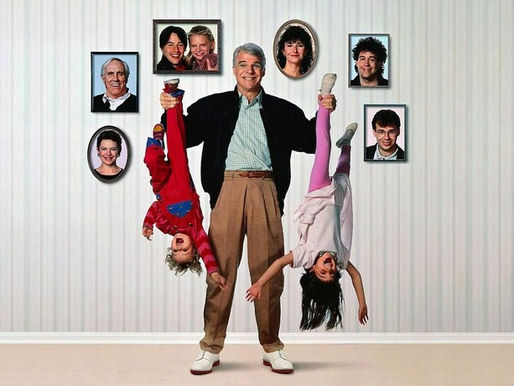top of page
Search
1980's
Classic Films from the 1980's


The Man With Two Brains (1983)
Released in 1983, The Man with Two Brains is a wildly inventive sci-fi comedy that serves as a hilarious satire of mad scientist tropes and classic horror conventions. Directed by veteran comedy filmmaker Carl Reiner, the film stars Steve Martin at the peak of his manic comic powers, paired with the sultry and dangerous Kathleen Turner.

Soames Inscker
4 min read


Popeye (1980)
Popeye (1980) is one of the most curious cinematic endeavors to emerge from a major studio in the post-Star Wars era, when Hollywood was chasing family-friendly properties with franchise potential. Directed by auteur Robert Altman and starring the late Robin Williams in his first major film role, Popeye adapts the iconic comic strip and cartoon sailor into a live-action musical—a genre hybrid that baffled critics and audiences alike at the time of its release.

Soames Inscker
4 min read


Running Scared (1986)
Released in 1986, Running Scared is a quintessential 1980s buddy-cop action-comedy that blends sharp dialogue, charismatic leads, and brisk pacing with an emotional core that's rare for the genre. Directed by Peter Hyams (Capricorn One, 2010), the film pairs Billy Crystal and Gregory Hines as two wisecracking Chicago cops on the brink of retirement who are forced back into action when a drug lord they've been chasing resurfaces.

Soames Inscker
4 min read


The Vanishing (1988)
The Vanishing (Spoorloos, 1988), directed by George Sluizer, is a psychological thriller that unnerves not through action or gore, but through its cold, clinical exploration of obsession, evil, and the terrifying ambiguity of disappearance. A Dutch-French production based on the novella The Golden Egg by Tim Krabbé, the film is a stark, tightly wound meditation on the unknown—and on the monstrous banality of evil.

Soames Inscker
5 min read


Blood Simple (1984)
Blood Simple (1984) is a film that feels at once timeless and radical. As the feature debut of Joel and Ethan Coen, it is a genre-defining work that would become the foundation for one of the most distinctive and influential filmographies in American cinema.

Soames Inscker
5 min read


Blow Out (1981)
Brian De Palma’s Blow Out (1981) is a gripping political thriller that doubles as an intricate meditation on perception, media manipulation, and the existential weight of truth. Both an homage to Michelangelo Antonioni’s Blow-Up (1966) and Francis Ford Coppola’s The Conversation (1974), Blow Out finds its own voice through De Palma’s signature stylistic bravado, razor-sharp editing, and a surprisingly powerful performance by John Travolta.

Soames Inscker
4 min read


Dressed to Kill (1980)
Brian De Palma’s Dressed to Kill (1980) is a provocative, stylized thriller that operates simultaneously as homage, erotic fantasy, psychological horror, and transgressive spectacle. Positioned squarely in the tradition of Hitchcockian suspense, the film draws heavily from Psycho (1960) in structure, theme, and visual language, but overlays that foundation with De Palma’s distinct cinematic bravado—split screens, dreamlike slow motion, voyeuristic framing, and a swirling Pino

Soames Inscker
5 min read


Dead Calm (1989)
Phillip Noyce’s Dead Calm is a taut, minimalist psychological thriller that wrings maximum tension from a deceptively simple setup. Set almost entirely on the open sea, the film traps its trio of characters—each battling their own past traumas and inner demons—within the isolating confines of a sailboat in the middle of nowhere.

Soames Inscker
5 min read


Thief (1981)
Michael Mann’s Thief (1981) is a masterful debut feature—cool, precise, emotionally complex, and utterly distinctive. Though it’s nominally a crime film about a high-end safecracker and his attempt to escape “the life,” Thief is ultimately less about heists than about identity, masculinity, and the pursuit of control in a chaotic world.

Soames Inscker
5 min read


The Long Good Friday (1980)
John Mackenzie’s The Long Good Friday (1980) is a searing, stylish, and deeply political British gangster film that not only redefined the genre in its homeland but also offered a startling mirror to the social and economic turmoil of late 1970s Britain.

Soames Inscker
5 min read


Blue Velvet (1986)
David Lynch’s Blue Velvet (1986) is a film that slithers beneath the manicured lawns of small-town Americana to expose a surreal and rotting underworld of violence, desire, and psychological disturbance. Bold, bizarre, and intensely provocative, Blue Velvet marked a turning point in Lynch’s career, solidifying his voice as one of modern cinema’s most original and transgressive.

Soames Inscker
4 min read


Escape to Victory (1981)
Escape to Victory (also released simply as Victory in the U.S.) is a peculiar and oddly charming fusion of World War II prison escape drama and rousing underdog sports film.

Soames Inscker
4 min read


See No Evil, Hear No Evil (1989)
See No Evil, Hear No Evil (1989) is the third in a string of collaborative comedies between two of the most beloved comic actors of the 1970s and 1980s: Richard Pryor and Gene Wilder. Following the massive success of Silver Streak (1976) and the solid reception of Stir Crazy (1980), this film attempted to capitalize on their proven chemistry with a high-concept premise—two men, one blind and the other deaf, unwittingly caught in a murder and jewel-smuggling plot.

Soames Inscker
5 min read


Three Amigos! (1986)
Released in 1986 and directed by John Landis, Three Amigos! is a comedic Western that brings together three of the biggest comedy stars of the era—Steve Martin, Chevy Chase, and Martin Short—in a spoof that lovingly pokes fun at silent film-era heroes, Mexican Western tropes, and the inflated egos of Hollywood performers.

Soames Inscker
5 min read


Roxanne (1987)
Roxanne (1987) is a romantic comedy that wears its intelligence—and its heart—on its sleeve. Written by and starring Steve Martin, and directed by Fred Schepisi, the film is a modern reimagining of Edmond Rostand’s 1897 play Cyrano de Bergerac, transporting the story of the eloquent, big-nosed hero into a quirky American mountain town in the 1980s.

Soames Inscker
4 min read


Trains, Planes and Automobiles (1987)
Directed, written, and produced by John Hughes, Planes, Trains and Automobiles (1987) is more than just a holiday road-trip comedy—it’s a poignant character study, a razor-sharp social satire, and one of the most beloved films of the 1980s.

Soames Inscker
4 min read


Parenthood (1989)
Released in 1989, Parenthood is a comedy-drama that manages the rare feat of being both sharply observational and warmly human. Directed by Ron Howard and based on a story developed with screenwriters Lowell Ganz and Babaloo Mandel, the film explores the messy, imperfect, and profoundly emotional world of raising children—and being raised in turn—across multiple generations of one extended family.

Soames Inscker
5 min read


Uncle Buck (1989)
Uncle Buck (1989) is a quintessential John Hughes film: heartfelt, hilarious, and sharply observant of both adult and adolescent growing pains. It’s also a career-defining vehicle for the late, great John Candy, whose turn as the bumbling but lovable title character transformed a potentially one-note comedic premise into a deeply resonant portrait of family, responsibility, and redemption.

Soames Inscker
4 min read


Black Rain (1989)
Black Rain (1989) is a stylish, noir-inflected action thriller directed by Ridley Scott that stands as a moody cultural artifact of late-1980s cinema. Set against the atmospheric backdrop of Osaka, Japan, the film explores themes of cultural clash, moral ambiguity, and personal redemption through the lens of a gritty crime narrative.

Soames Inscker
4 min read


Dead Poets Society (1989)
Dead Poets Society (1989) is a deeply affecting, beautifully crafted coming-of-age drama that has resonated with audiences for decades. Directed by Peter Weir and featuring a career-defining performance by Robin Williams, the film explores themes of individuality, conformity, rebellion, and the transformative power of art—particularly poetry.

Soames Inscker
5 min read
bottom of page


